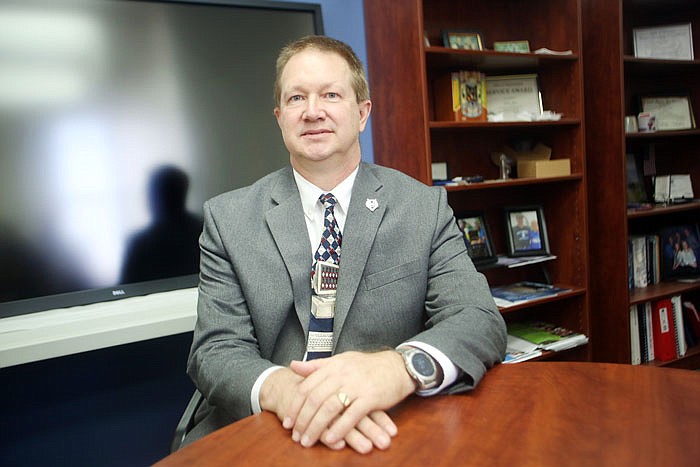For some it will seem like ancient history.
Starting about 20 years ago, a lot of computer people worried the world's computer systems wouldn't function on and after New Year's Day 2000.
So they started working feverishly to make sure technology would continue after what became known as "Y2K."
John Bax, now 56, was one of the people in the middle of that effort for the state of Missouri.
"Back in the 1980s and '90s, every space in a computer cost you money - so we were very efficient back then, to where we only used two spaces for date-times," he recalled during an interview last week. "And we had to rewrite all of the older systems to accommodate a four-character space.
"People wouldn't think that was tough - but that's enormous when you have millions and millions of lines of (computer) code, and you have to search through it for two-character date fields and then make them four-characters.
"We spent a good 18 months preparing for it."
The months of worry and work led to an apparently seamless rollover from "99" to "2000."
Bax has been Lincoln University's chief information officer since Jan. 1 and previously worked for state government for 18 years, then spent a decade with what now is the Missouri University of Science and Technology, Rolla.
He commuted to that job while continuing to live in Westphalia.
Bax and his wife, Kerry, married in August 1992.
Later, they bought an 1880s farmhouse in Westphalia "and, together, we restored it. Being a techie guy, I like to do modernization - but I like the 'old' look and feel."
So he restores things with a "modernized twist," he said, noting: "I probably have one of the oldest-looking houses in Westphalia - but it has high-speed (internet) bandwidth and can handle three growing children, with five devices, all at once."
He also restores furniture, Bax said.
Although he really enjoyed his time in Rolla, Bax was ready for a new challenge when Lincoln was looking for someone to lead its efforts to upgrade and modernize its technology.
"I like to help, and I like to be in a situation where I can be the most help," he explained last week.
He noted LU's ongoing budget issues over the years had led to its technology not "getting the attention it really needed."
But, Bax said, Lincoln administrators knew they had technology challenges, and an assessment gave them "a direction and I get the opportunity to come in and change it" ... along with his 15-person staff of "talented, wonderful people."
For instance, when students return to classes this month, he hopes to have a new "mobile app" students can use to check on their classes and class information.
In June, LU's curators approved spending about $1.1 million for the physical upgrade, replacing wiring and switches and improving the on-campus Wi-Fi capabilities in dorms, classrooms and meeting places.
"A modern network is really designed for a lot of things that make it easier to teach - to help people learn," he said, "where we can do online learning, online services, online advising."
The work already is underway - and Bax hopes it's completed no later than this time next year.
"I actually think what we're putting in place will serve this campus very easily for 10 years," he said.
He said one issue is the initial purchase price of a computer "is only 20 percent of the support-cost for it. If you're going to keep that for five, six or seven years - we're going to spend 80 percent of our time supporting it."
Today's technology is more flexible to changes than in the past and, in the future, should accommodate upgrades rather than wholesale changes, he said.
The current project will bring Lincoln's voice (telephones), computer and wireless networks up to today's standards.
"Those open up doors for us to do other things better," Bax said. "That's really what's going to excite me.
"You learn more through interaction, from my perspective."
And technology helps that learning in ways that the straight lectures of previous generations didn't do, he said.
"The millennial students coming in want to be interactive," he said. "They're very in-tune to that."
He regularly is asked to look at new technology, to see how it may help Lincoln's teachers and students.
Last Thursday, he received a large monitor - which looks like a flat-screen TV - that could replace projectors, screens and whiteboards be inter-active with individual students' laptops.
"I need to evaluate it thoroughly," Bax said. "I don't know what it's life-cycle is."
And that's an important part in deciding whether it's something the school eventually would like to own.
"The systems are really great, and the people here are good," he said. "They've been doing a very diligent job, supporting the system beyond its normal life cycle.
"It's amazing all of it's held together, as long as it has."

